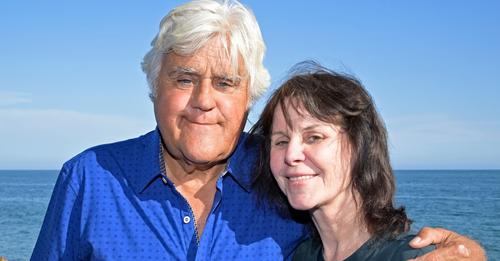Jay Leno has filed for a conservatorship over his wife’s estate.
The television host filed for the conservatorship on Jan. 26 in Los Angeles, citing that she is “substantially unable to manage his or her financial resources,” according to court documents obtained by TODAY.com.
The documents include a capacity declaration, which according to the Judicial Branch of California, is a form completed by either a physician, psychologist or religious healing practitioner to inform the court of the “mental capacity of a potential conservatee.”
Mavis Leno’s doctor stated that she “suffers from dementia,” according to the form.
Jay Leno is seeking approval from the court to implement an estate plan which he believes his wife would execute “if she had the capacity to do so,” according to the documents.
The petition states that Jay Leno “wishes to create a trust to hold each of his and Mavis’s one-half interest in their community property.”
“Jay desires to execute an estate plan, including a revocable trust and will, which will provide for Mavis and Mavis’s brother and her sole living heir aside from Jay,” the documents state.
The court documents also state on several occasions that Jay Leno has handled both of their finances throughout their marriage of more than four decades.
Jay Leno’s own health as been in the headlines in recent years, after he suffered burns from a garage fire and broke several bones following a motorcycle accident.
However, he has not spoken publicly about his wife’s health, nor specified the type of dementia his wife has. The petition states that she has been “progressively losing capacity and orientation to space and time for several years.”
A hearing for the proposed conservatorship is set for April 9. According to the form, Mavis Leno is “able but unwilling” to attend the hearing, but “does not wish to contest the establishment of a conservatorship,” does not object to her husband as conservator nor prefer another person serve in the role.
What to know about dementia
The Centers for Disease Control and Prevention states that dementia is a general term for “the impaired ability to remember, think, or make decisions,” rather than a specific disease itself. The most common type of dementia is Alzheimer’s disease.
In 2014, there was an estimated 5 million adults over the age of 65 who had dementia. The Mayo Clinic also reports that between 5 and 6 percent of individuals with dementia will develop symptoms before 65, which is referred to as early-onset dementia.
Symptoms of dementia include struggles with attention, communication, memory, reasoning and visual perception. Common signs of dementia are forgetting names of family members or friends, getting lost in a neighborhood familiar to the individual and the inability to independently finish tasks.
The Alzheimer’s Association reports that dementia is caused by diseases that damage brain cells, which interferes with their ability to communicate with one another. When this communication is disrupted, it causes alterations to our behavior, communication, feelings and thoughts.
Risk factors for dementia include age and genetics, but research has suggested that a healthy diet — including the Mediterranean diet — exercise and refraining from smoking can help decrease the risk. For early-onset dementia, risk factors include depression, diabetes, heart disease, social isolation, vitamin D deficiency and more.




